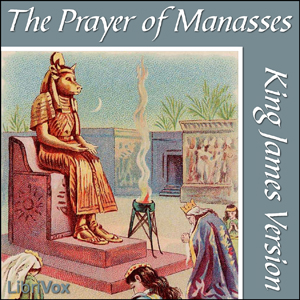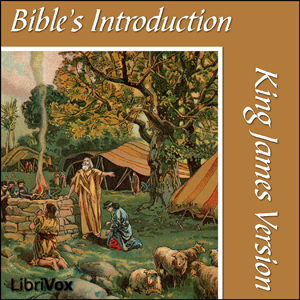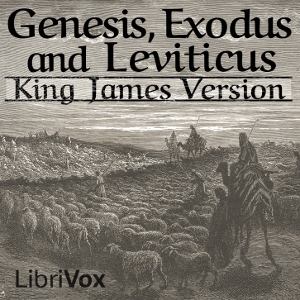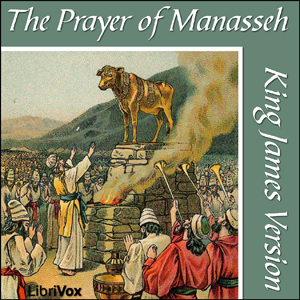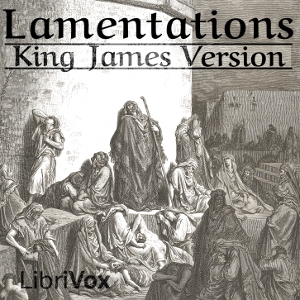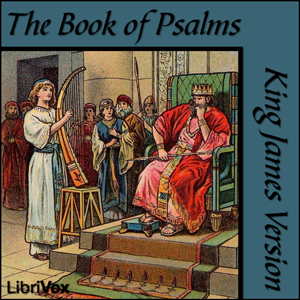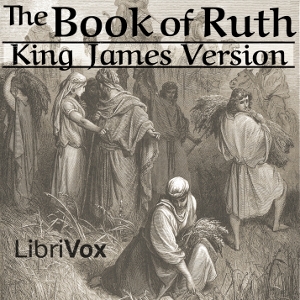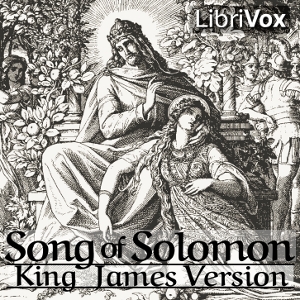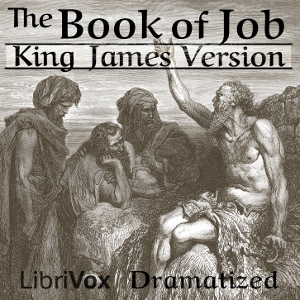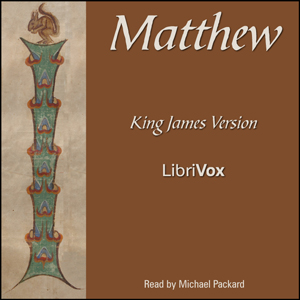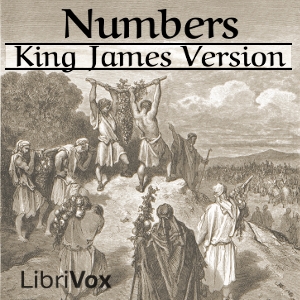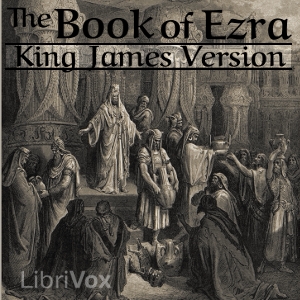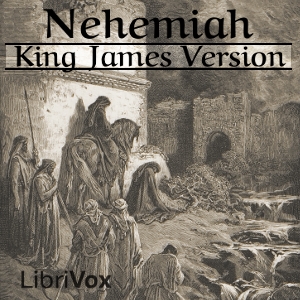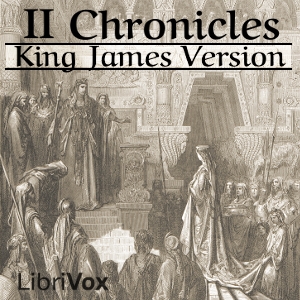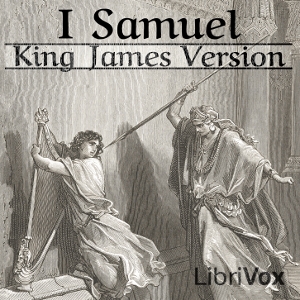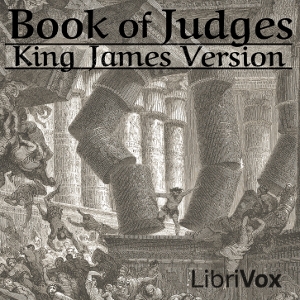Esther appears in the Bible as a woman of deep piety, faith, courage, patriotism, and caution, combined with resolution; a dutiful daughter to her adopted father, docile and obedient to his counsels, and anxious to share the king’s favour with him for the good of the Jewish people. That she was raised up as an instrument in the hand of God to avert the destruction of the Jewish people, and to afford them protection and forward their wealth and peace in their captivity, is manifest from the Scripture account. (summary by wikipedia)
3 episodes
The Epistle of Jude is a brief book of only a single chapter with 25 verses. It is a general epistle, that is, a letter meant to be circulated and read in all the early Christian churches. Although brief, the content of the book is dense. Many examples of evildoers and strong warnings about their fates are given in rapid succession. The dispute over the body of Moses and the prophecies of Enoch are mentioned in no other book in the Bible. The doxology, or hymn of praise, at the end of the book is particularly beautiful. Summary by Susan Denney.
1 episodes
The writer of this letter instructs the early Christians on the value of showing patience, controlling an unruly tongue and treating all people with kindness without respect to their social position. It also provides the basis for the practice of blessing the sick with an anointing of oil. The book has been historically controversial because of its teaching that both faith and works are necessary to salvation. The great promise in the book is that those who are honestly seeking wisdom may receive it by asking for divine help. Summary by Susan Denney
1 episodes
The Gospel of Luke is the most literary of the four gospels which recount the life and work of Jesus Christ. Although anonymous, the book is generally attributed to Luke, a physician and a missionary companion of the Apostle Paul. His account contains events which are unique in the four gospels including the visits of Gabriel to Mary and Zacharias, the visit of the shepherds to the birth of Jesus, and the story of the young Jesus at the temple. This gospel contains the most references to women and is favorable to the Gentiles for whom it was written. Perhaps the most well-known of all New Testament passages is the second chapter of Luke which tells of the birth of Christ. (Summary by Susan Denny)
12 episodes
The Prayer of Manasses is supposed to have been the prayer of Manasses King of Judah when he repented from his idolatrous ways when he was held captive by the Assyrians in Babylon. Manasseh’s evil ways are recorded in 2 Kings 21:1-18, and the account of his repentance is recorded in 2 Chronicles 33:10-17. The Prayer of Manasses is held to be a deuterocanonical book by many Christians and is held to be Apocryphal by others. This reading is from the Holy Bible, King James Version 1611 which contains the Apocrypha separate from both the Old and New Testament. -- Summary by David Shamp
1 episodes
The introduction to the KJV Bible revealed the thanks of the translators to "TO THE MOST HIGH AND MIGHTY PRINCE JAMES, BY THE GRACE OF GOD, KING OF GREAT BRITAIN, FRANCE, AND IRELAND". It is fitting to read, as it reminds contemporary readers of the transitory nature of all Bible translations. (Summary by Sam Stinson)
1 episodes
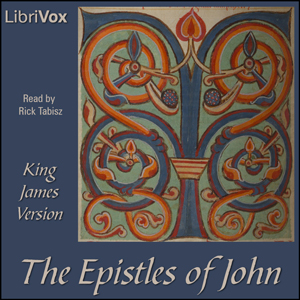
The Authorized King James Version is an English translation by the Church of England of the Christian Bible begun in 1604 and completed in 1611. First printed by the King's Printer, Robert Barker, this was the third such official translation into English; the first having been the Great Bible commissioned by the Church of England in the reign of King Henry VIII, and the second having been the Bishop's Bible of 1568. In January 1604, King James I of England convened the Hampton Court Conference where a new English version was conceived in response to the perceived problems of the earlier translations as detected by the Puritans, a faction within the Church of England.
James gave the translators instructions intended to guarantee that the new version would conform to the ecclesiology and reflect the episcopal structure of the Church of England and its beliefs about an ordained clergy. The translation was by 47 scholars, all of whom were members of the Church of England. In common with most other translations of the period, the New Testament was translated from Greek, the Old Testament was translated from Hebrew text, while the Apocrypha were translated from the Greek and Latin. (Introduction from Wikipedia)
7 episodes
The King James Version is an English translation of the Christian Bible begun in 1604 and first published in 1611 by the Church of England. In common with most other translations of the period, the New Testament was translated from the Textus Receptus (Received Text) series of the Greek texts. The Old Testament was translated from the Masoretic Hebrew text, while the Apocrypha [not included in this recording] was translated from the Greek Septuagint (LXX). (Summary from Wikipedia, slightly modified)This is a solo recording of Genesis, Exodus and Leviticus.
24 episodes
The Prayer of Manasseh is a short work of only 15 verses that purports to be the penitential prayer of the Judean king Manasseh, who is recorded in the Bible as one of the most idolatrous (2 Kings 21:1-18). However, after having been taken captive by the Assyrians, he prays for mercy (2 Chronicles 33:10-17) and turns from his idolatrous ways. (Summary by Wikipedia)
1 episodes
The preface to the KJV Bible is fitting to read, as it reminds contemporary readers of the transitory nature of all Bible translations. The preface is a necessary, though often unread, gift from the translators to readers of the KJV. If you read this preface, or hear it, you will be able to unravel many false teachings associated with the exclusive use of one version. It not only defends the work of the translators, it defends the necessity of a translation for the time and place, to speak in a voice understandable to a contemporary audience. Listen to this preface for a greater appreciation of the work of these fine men. (Summary by Sam Stinson)
3 episodes
The history of the judges of Israel. (Summary by Joy Chan)
21 episodes
The history of Israel from the final years of King David's life, through the reign of his son, Solomon, to the rule of King Jehoshaphat of Judah and King Ahaziah of Israel. (Summary by Joy Chan)
22 episodes
The Book of Lamentations is a series of mournful poems written by the Prophet Jeremiah as he saw the destruction of Jerusalem. Jeremiah laments the desolation of this once great city, as well as the condition of the people, many of whom were once surrounded by great wealth and honor. Jeremiah has been referred to by many as "The Weeping Prophet", and this book merely confirms the sense of this title. (Summary by Mark Penfold)
5 episodes
The history of the kings of Judah and Israel until their downfall. (Summary by Joy Chan)
25 episodes
The history of the Israelites from the death of Moses to the death of Joshua. (Summary by Joy Chan)
24 episodes
The book of Psalms is a collection of the works of at least six authors.The book of Psalms has been a source of inspiration to all those believers who seek guidance. Apart from this they have provided comfort to those who struggle with all kinds of problems.They explore human emotions in that they uncover feelings of deep despair to ecstatic delight. It has been used as a book of prayer and as a book of praise and worship at the worship services of many churches and denominations.The writers of the Psalms seem to have a serene confidence in God’s guidance and provision. (Introduction by Pella Ikonomaki)
50 episodes
Originating in the circumstance of a multicultural church (primarily Jewish and Hellenistic), Ephesians addresses issues appropriate to the diverse religious and cultural backgrounds present in the community. Paul addresses hostility, division, and self-interest more than any other topic in the letter, leading many scholars to believe that his primary concern was not doctrinal, but behavioral.
Some theologians agree the main theme of Ephesians is in response to the newly converted Jews who often separated themselves from their Gentile brethren. The unity of the church, especially between Jew and Gentile believers, is the keynote of the book. (Summary from Wikipedia)
1 episodes
The Epistle of Paul to Titus, usually referred to simply as Titus, is one of the three Pastoral Epistles (with 1 Timothy and 2 Timothy), traditionally attributed to Saint Paul, and is part of the New Testament. It describes the requirements and duties of elders and bishops. (summary by Wikipedia)
1 episodes
The Epistle of Paul to Philemon, usually referred to simply as Philemon, is a prison letter to Philemon from Paul of Tarsus. Philemon was a leader in the Colossian church. This letter, which is one of the books of the New Testament, deals with forgiveness. (Introduction by Wikipedia)
1 episodes
The First Epistle of Paul to Timothy, usually referred to simply as First Timothy and often written 1 Timothy, is one of three letters in New Testament of the Bible often grouped together as the Pastoral Epistles, the others being Second Timothy and Titus. The letter, traditionally attributed to Saint Paul, consists mainly of counsels to his younger colleague and delegate Timothy regarding his ministry in Ephesus (1:3). These include instructions on the forms of worship and organization of the Church, the responsibilities resting on its several members, including episcopoi (overseers or bishops) and diaconoi ("deacons"); and secondly of exhortation to faithfulness in maintaining the truth amid surrounding errors (iv.iff), presented as a prophecy of erring teachers to come. (Summery by Wikipedia)
2 episodes
This short Old Testament book tells the story of Naomi and Ruth, Naomi's daughter-in-law and great-grandmother of King David. (Summary by TriciaG)
1 episodes
The Second Epistle of Paul to Timothy, usually referred to simply as Second Timothy and often written 2 Timothy, is one of the three Pastoral Epistles traditionally attributed to Saint Paul, and is part of the New Testament. (Summary by Wikipedia)
1 episodes
Also known as Song of Songs, Solomon's Song of Songs, or as Canticles. The protagonists of the Song of Songs are a woman (identified in one verse as "the Shulamite") and a man, and the poem suggests movement from courtship to consummation. Additionally, the Song includes a chorus, the "daughters of Jerusalem."
In spite of the lack of explicitly religious content, the Song is often interpreted as an allegorical representation of the relationship of God and Israel, or for Christians, God and the Church or Christ and the human soul, as husband and wife. (Summary by Wikipedia)
Readers:Beloved: EzwaLover: Algy PugFriends: TriciaG
2 episodes
"Jesus of Nazareth, a Biography, by John Mark," recognizes the author of the second Gospel as that "John, whose surname was Mark" (Acts 15:37), whom Barnabas chose as companion when he sailed for Cyprus on his second missionary journey. In making use of the new title, the plan of the Editor is to present "The Gospel: According to Mark" as it would be printed were it written in the twentieth rather than the first century. (Introduction from Forward, by D. Appleton & Co, Publishers, 1922)
3 episodes
The First Epistle of Paul to the Thessalonians, usually referred to simply as First Thessalonians and often written 1 Thessalonians, is a book from the New Testament of the Christian Bible. The first letter to the Thessalonians was likely the first of Paul's letters, probably written by the end of A.D. 52[1], making it, so far as is now known, the oldest extant Christian document.For the most part, the letter is personal in nature, with only the final two chapters spent addressing issues of doctrine, almost as an aside. Paul's main purpose in writing is to encourage and reassure the Christians there. Paul urges them to go on working quietly while waiting in hope for the return of Christ. (summary by Wikipedia)
1 episodes
The Book of Job is one of the books of the Hebrew Bible. It relates the story of Job, his trials at the hands of Satan, his theological discussions with friends on the origins and nature of his suffering, his challenge to God, and finally a response from God. The Book itself comprises a didactic poem set in a prose framing device and has been called "the most profound and literary work of the entire Old Testament". The Book itself and its numerous exegeses are attempts to address the problem of evil. (Introduction from Wikipedia)
Cast:God: Dale BurgessSatan: Mickey RenoMessengers 1 & 4: amicrazy2uMessenger 2: Aidan BrackMessenger 3: J.S. KenneyJob: Algy PugJob's Wife: Roseanne SchmidtEliphaz the Temanite: Matthew ReeceBildad the Shuhite: David LawrenceZophar the Naamathite: EzwaElihu the son of Barachel the Buzite: Mark PenfoldNarrator: TriciaGAudio edited by: TriciaG
22 episodes

The Second Epistle of Paul to the Thessalonians, often referred to as Second Thessalonians and written 2 Thessalonians, is a book from the New Testament of the Christian Bible.The traditional view is that the second epistle to the Thessalonians was probably written from Corinth not many months after the first. Apparently the first letter was misunderstood, especially regarding the second advent of Christ. The Thessalonians had embraced the idea that Paul had taught that "the day of Christ was at hand", that Christ's coming was about to occur. This error is corrected (2:1-12), and the apostle announces what first must take place before the end times. The "Great Apostasy" is first mentioned here as is the "Katechon".A passage from this book reading "For even when we were with you, this we commanded you, that if any would not work, neither should he eat", (2 Thess. 3:10), was later adapted by Vladimir Lenin as an adage of the Soviet Union, He who does not work, neither shall he eat. (Introduction by Wikipedia)
1 episodes
The Acts of the Apostles, also known as The Book of Acts, is the fifth book of the New Testament. It follows the 4 Gospel accounts not only in order but in chronology. As the Gospels end with the death and resurrection of Jesus Christ, Acts begins with the 11 Apostles and His other disciples embarking on the adventure of following Him and fulfilling His Great Commission (see Matthew 28:16-20 for the most commonly cited version of the Great Commission). Though several heroes of the early Christian church are included in this narrative, much of the book tells the story of the Apostle Paul from his conversion to Christianity to his missionary journeys. (Introduction by Jason Justice)
14 episodes
The First Epistle of Paul to the Corinthians, often referred to as First Corinthians (and written as 1 Corinthians), is the seventh book of the New Testament of the Bible. Paul of Tarsus composed this letter in Greek, to the Christians of Corinth, Greece.
Corinth was the meeting point of many nationalities because the main current of the trade between Asia and western Europe passed through its harbors.
Paul wrote 1 Corinthians to correct what he saw as erroneous views in the Corinthian church. Several sources informed Paul of conflicts within the church at Corinth. Paul then wrote this letter to the Corinthians, urging uniformity of belief ("that ye all speak the same thing and that there be no divisions among you," 1:10) and expounding Christian doctrine. (Summary modified from Wikipedia)
8 episodes
The Second Epistle of Paul to the Corinthians, often referred to as Second Corinthians (and written as 2 Corinthians), is the eighth book of the New Testament. The letter, originally written in Koine Greek, is from Paul of Tarsus (and Timothy) to the Christians of Corinth, Greece.
Paul defends his authority as an apostle. He also states the importance of forgiving others, and God’s new agreement that comes from the Spirit of the living God (2 Cor. 3:3), and the importance of being a person of Christ and giving generously to God’s people in Jerusalem, and ends with his own experience of how God changed his life. (Summary modified from Wikipedia)
7 episodes

The book of Proverbs is referred to as wisdom literature along with several others: the book of Job, Ecclesiastes, the Song of Solomon, and certain Psalms, known as wisdom psalms. Throughout Proverbs, wisdom (or the wise person) is compared and contrasted with foolishness (or the fool). 'Fool' in Proverbs indicates one who is lacking in morality and uninterested in correction, not one who is merely silly or playful. Wisdom is held up as something worth effort to attain and the reader is told that it starts with the person of God: "The fear of The Lord is the beginning of wisdom."
In addition, throughout Proverbs, wisdoms are mostly come from father to son or mother to son structure. This wisdom literature is concerned with the realities of human experience, from the mundane to the sublime, and with the relationship between that experience and the divine. Not only that, we can also find many wisdoms of woman over and over, especially we find reference to Wisdom as a female figure who speaks to the young man and invites him into her house. When we talk about this Woman Wisdom, it speaks frequently in the first person and identifies herself not just as the divine companion, but also as the source of order in society and success in life. Over and over in the book of Proverbs, it addressed a warning to the young man to avoid sexual relationships with a foreign or strange woman. (Introduction by Wikipedia)
31 episodes
Probably written by the prophet Ezra, 2 Chronicles covers the period from the beginning of King Solomon's reign to the conclusion of the Babylonian exile. Like 1 Chronicles, it focuses on the correct way to worship God. (Introduction by Joy Chan)
36 episodes
The Gospel According to Matthew is one of the four canonical gospels, one of the three synoptic gospels, and the first book of the New Testament. It tells of the life, ministry, death, and resurrection of Jesus of Nazareth. (introduction by Wikipedia)
28 episodes
The Book of Isaiah is one of the Major Prophets in the Old Testament. Jews and Christians consider the Book of Isaiah a part of their Biblical canon. Christians believe that Isaiah prophesied the virgin birth of Jesus Christ (Isaiah 7:14, KJV): "Behold, a virgin shall conceive, and bear a son, and shall call his name Immanuel." Many of the New Testament teachings of Jesus refer to the book of Isaiah.
Gregory of Nyssa (c. 335–395), believes that the Prophet Esaias (Isaiah) "knew more perfectly than all others the mystery of the religion of the Gospel." Jerome (c. 342–420) also lauds the Prophet Esias, saying, "He was more of an Evangelist than a Prophet, because he described all of the Mysteries of the Church of Christ so vividly that you would assume he was not prophesying about the future, but rather was composing a history of past events." (Introduction from Wikipedia)
22 episodes
The Book of Numbers is the fourth book of the Hebrew Bible, and the fourth of five books of the Jewish Torah/Pentateuch. This book may be divided into three parts:
1. The numbering of the people at Sinai, and preparations for resuming their march (1–10:10).
2. An account of the journey from Sinai to Moab, the sending out of the spies and the report they brought back, the murmurings (eight times) of the people at the hardships by the way, and the subsequent exile into the wilderness for 40 years (10:11–21:20).
3. The transactions in the plain of Moab before crossing the Jordan River (21:21–36).
The period comprehended in the history extends from the second month of the second year, as measured from the Exodus, to the beginning of the eleventh month of the fortieth year, in all about thirty-seven years and nine months; a dreary period of wanderings. (Introduction from Wikipedia)
14 episodes
The book of Ezekiel follows the southern kingdom of Israel, Judah, into captivity by the Babylonians. Ezekiel cries judgement on the Israelites for their sins, but also sings of God's mercy and the ultimate salvation of His people. Aside from its Judeo-Christian truths, the powerful imagery and poetry found throughout the book make for an interesting study in ancient literature. (Introduction by Jenn Raimundo)
12 episodes
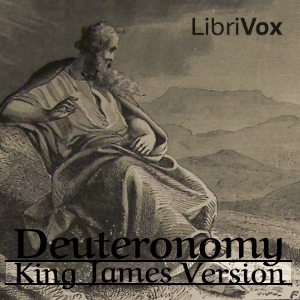
Deuteronomy is the fifth book of the Hebrew Bible, and of the Jewish Torah/Pentateuch. The Hebrew title, "[spoken] words", is taken from the opening phrase, "These are the words..."; the English title is from the Greek and Latin, both meaning "second law", a mistranslation of the Hebrew phrase mishneh ha-torah ha-zoth, "a copy of this law", in Deuteronomy 17:18.
The book consists of three sermons or speeches delivered to the Israelites by Moses on the plains of Moab, shortly before they enter the Promised Land. The first sermon recapitulates the forty years of wilderness wanderings which have led to this moment, and ends with an exhortation to observe the law (or teachings); the second reminds the Israelites of the need for exclusive allegiance to one God and observance of the laws he has given them, on which their possession of the land depends; and the third offers the comfort that even should Israel prove unfaithful and so lose the land, with repentance all can be restored.
One of its most significant verses is Deuteronomy 6:4, the Shema, which has become the definitive statement of Jewish identity: "Hear, O Israel: the Lord our God, the Lord is one." Verses 6:4-5 were also quoted by Jesus in Mark 12:28-34 as part of the Great Commandment. (Modified from Wikipedia)
13 episodes
Second Gospel or account of the ministry of Jesus of Nazareth in the New Testament of the Christian Bible. Commonly regarded as the first recorded gospel of Christ. (Summary by Simon)
8 episodes
The Book of Ezra was originally attached as one volume with the Book of Nehemiah. It was first separated from Nehemiah in the Latin Vulgate translation of the Bible. The Book tells the story of the Hebrew exiles who returned to Israel from Babylon. It recounts the story of faith and leadership in rebuilding the Temple in Jerusalem. (Summary by Simon)
5 episodes
The Book of Nehemiah is a book of the Hebrew Bible. Told largely in the form of a first-person memoir, it concerns the rebuilding of the walls of Jerusalem by Nehemiah, a Jew who is a high official at the Persian court, and the dedication of the city and its people to God's laws (torah). The events take place in the second half of the 5th century BCE, and together with the Book of Ezra, it represents the final chapter in the historical narrative of the Hebrew Bible.
The book tells how Nehemiah, at the court of the king in Susa, is informed that Jerusalem is without walls and resolves to restore them. The king appoints him as governor of Judah and he travels to Jerusalem. There he rebuilds the walls, despite the opposition of Israel's enemies, and reforms the community in conformity with the law of Moses. After an absence in Susa he returns to find that the Israelites have been backsliding, taking non-Jewish wives, and stays to enforce the Law. (Summary by Wikipedia)
5 episodes
2 Chronicles was purportedly written by Ezra the scribe. It expounds the history of King Solomon and the kings came after him. It is very similar to 1 and 2 Kings, but centers primarily on the Temple as the Presence of God among the people. It is a history of the Kings of Israel. (Summary by Sundiata)
12 episodes
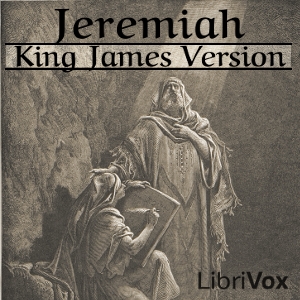
The Book of Jeremiah is the second of the Latter Prophets in the Hebrew Bible, following the book of Isaiah and preceding Ezekiel and the Book of the Twelve. (The order is somewhat different in the Christian Old Testament). It derives its name from, and records the visions of, Jeremiah, who lived in Jerusalem in the late 7th and early 6th centuries BCE during the time of king Josiah and the fall of the Kingdom of Judah to the Babylonians. The book can be divided into roughly 6 sections and uses poetic, narrative, and biographical genres that are interspersed throughout the book. The breakdown of sections is as follows:Chapters 1-25 (The earliest and main core of Jeremiah's message)Chapters 26-29 (Biographic material and interaction with other prophets)Chapters 30-33 (God's promise of restoration)Chapters 34-45 (Mostly interaction with Zedekiah and the fall of Jerusalem)Chapters 46-51 (Divine punishment to the nations surrounding Israel)Chapter 52 (Appendix that retells 2 Kings 24:18-25:30)(Summary by Wikipedia)
16 episodes
Acts tells the story of the Apostolic Age of the Early Christian church, with particular emphasis on the ministry of the Twelve Apostles and of Paul of Tarsus. The early chapters, set in Jerusalem, discuss Jesus' Resurrection and Great Commission, his Ascension with a prophecy to return, the start of the Twelve Apostles' ministry, and the Day of Pentecost. The later chapters discuss Paul's conversion, his ministry, and finally his arrest and imprisonment and trip to Rome. (Introduction by Wikipedia)
11 episodes

The seventeenth book of the King James Bible, Esther recounts a tale of two queens. Queen Vashti is the loveliest woman in the land, but when she refuses to come to her husband's banquet, she is banished from the kingdom. Hadassah is called to take her place - a beautiful young woman with a secret. Hadassah is Jewish, but her guardian warns her to keep her identity hidden. Taking on the name Esther - which means "hidden" - she moves in to the palace, but when a wicked man hatches a plot to rid the land of Jews, her guardian asks her to take on a terrible job. Esther must go to the king unasked - and if he does not extend his golden scepter, she will face the ultimate punishment. Can she rely on God to save her people - and herself? - (Summary by Rachel)
Narrator: Rachel
Queen Esther: Esther ben Simonides
King Ahasuerus: Mark Penfold
Memucan / The King's Servants: Mark Chulsky
Mordecai: David Lawrence
Haman: Adam
Zeresh, Haman's wife: Adele de Pignerolles
Harbonah, a eunuch: Glenn O'Brien
File Editor: Rachel
9 episodes
The Book of Ruth in the Bible takes a new interpretation as it comes to life in this dramatic reading. Ruth, a young Moabitess whose husband dies, must make the decision to stay in her homeland or go with her mother-in-law Naomi back to Naomi’s homeland of Israel, where she will most likely be an outcast. Will she choose to go back to her gods and old lifestyle, or follow her love for her mother-in-law and learn about a new God and way of life? (Summary by Adele de Pignerolles)
Ruth, read by Esther ben Simonides
Naomi, read by Adele de Pignerolles
Orphah, read by TriciaG
Women, read by Rachel
Boaz, read by Larry Wilson
Men, read by E Snow
Servant, read by DomBombadil
Kinsman, read by Glenn O'Brien
Narrator, read by Beth Thomas
Edited by Bria Snow
1 episodes
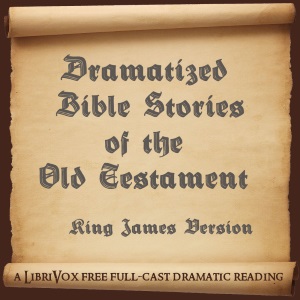
Hear the stories of the Old Testament brought to life in this Dramatised Reading of selections from the King James Version. Feel the sweep of Bible history through the stories of key people: Adam and Eve, Abraham, Jacob, Joseph, Moses, Joshua, Gideon, Samson, Saul, David, Solomon, Elijah, Elisha, Jonah and Daniel. A full cast recording by Librivox volunteers brings to life the people of the Old Testament from Aaron to Zipporah!
Please note that Ruth, Esther, Job and the Song of Solomon have been dramatised separately, and are available in the catalogue as standalone projects. (summary by Beth Thomas)
Readers: Beth Thomas, David Olson, Tomas Peter, Rachel, Sonia, Esther ben Simonides, MaryAnnS, Larry Wilson, Kristin Gjerløw, Adele de Pignerolles, Lydia, Kathrine Engan, Taysha Lynn, E Snow, Glenn O'Brien, SeekWisdom, michaelcjohnson, Teresa Bauman, David Allen, Hamlet, Michael Landu, Gideon Snow, Howard Watts, Jared Hess, Zames Curran, Anfinwen, Florian Lengyel, David Lodes, Vanessa Cooley, David Purdy, Bethesda Lily, Leanne Yau, Levi Throckmorton, Bethany Baldwin, Joseph Tabler, Amber Jewels, Jessie Yun, Jay Snow, Cobalt Minnow, Bria Snow, Andrew Snowdon
Editors: Bria Snow, Rachel, Adele de Pignerolles, Kim, Larry Wilson, Zames Curran
Proof-listeners: Georgina Shaw, Rachel, Esther ben Simonides
20 episodes
The 1769 Oxford Edition. The King James Bible is one of the most important books in the English speaking world, so influential that its language permeates facets of society from religion, politics, literature, art, education and music. (Summary by Michael Armenta)
127 episodes
The Book of Job, memorably conceived of by C G Jung as the story of one man's struggle to make conscious the undifferentiated contents of the unconscious, is in its own terms an intensive study of the age old problem of undeserved suffering at the hands of an all-wise, aii-good, all-powerful God. Seen by some as a prefiguration of the crucifixion and ultimate resurrection of Jesus Christ, it is for all of us the intensely poetic story of a soul in pain, reaching out for its final redemption. - Summary by Tony Addison
6 episodes
The First Book of the Machabees is a history of the struggle of the Jewish people for religious and political liberty under the leadership of the Machabee family, with Judas Machabeus as the central figure. After a brief introduction (i, 1-9) explaining how the Jews came to pass from the Persian domination to that of the Seleucids, it relates the causes of the rising under Mathathias and the details of the revolt up to his death (i, 10-ii); the glorious deeds and heroic death of Judas Machabeus (iii-ix, 22); the story of the successful leadership of Jonathan (ix, 23-xii), and of the wise administration of Simon (xiii-xvi, 17). It concludes (xvi, 18-24) with a brief mention of the difficulties attending the accession of John Hyrcanus and with a short summary of his reign. The book thus covers the period between the years 175 and 135 B.C. ( Bechtel, F. (1910). The Books of Machabees. In The Catholic Encyclopedia. New York: Robert Appleton Company.)
3 episodes




